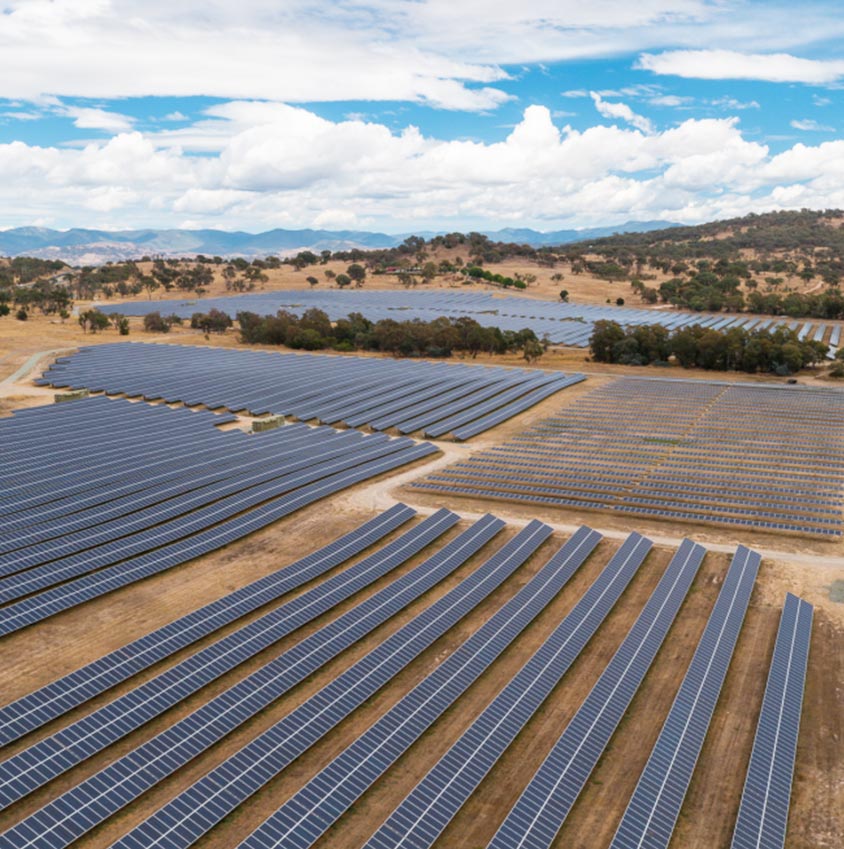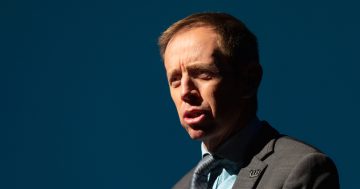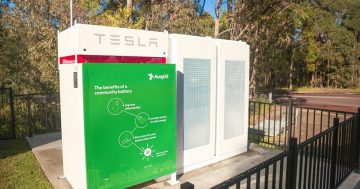
It’s time for governments to show real leadership on energy and the transition to a decarbonised economy. Photo: Mugga Lane Solar Park.
Prescient renewable energy contracts have generally insulated Canberrans from the power bill shocks coming for the rest of eastern Australia but the ACT is not immune to the electricity crisis wracking most of the country.
It’s been a called a ‘perfect storm’ but the situation the country, and the new Labor Government, finds itself in only exposes the fraud that is the electricity market and the dereliction of duty both Labor and Coalition parties are guilty of.
I am old enough to remember when the electricity supply was a government supplied essential service not a commodity to exploit for profit, or marketed in multi-million dollar advertising campaigns.
It was not perfect so there is no point painting a nostalgic picture of cheap, plentiful and uninterrupted power because there were also blackouts as unions flexed their considerable muscles and fat costly bureaucracies.
That was why when the neo-liberal disease that infected governments of all persuasions in the 1980s and 90s came along they were all too willing to corporatise or offload electricity generation to the private sector to bolster their bottom lines, all the while assuring consumers that competition would mean better service and cheaper bills.
That palpably was nonsense.
Now decades later, Australia has a “market” unable to withstand the challenge of renewables, fossil fuel generators at the mercy of the international coal and gas prices, and the consumer coming a long way behind shareholders.
The Gillard Government should have ensured a gas reservation mechanism like Western Australia, while a near-decade of Coalition governments should not have waged the climate wars but paved the way for a sensible transition to a decarbonised system. But above all, the duty of generators should have been to consumers first, both residential and business.
Some will argue that the regulator stepping in to ensure supply means the system is working and there is no need for change. But after hearing of reduced power station maintenance and generators shutting down supply if they could not make a profit, not many will agree.
Nor will many understand how coal and gas rich Australia can even have an energy crisis.
Others have seized on the disruption to energy markets caused by Russia’s war on Ukraine and the threat to electricity supplies to roll out the now-familiar arguments against moving to renewables, arguing that they cannot provide reliable power when the wind doesn’t blow and the sun doesn’t shine.
They conveniently forget the imperative of climate change, and the developments in battery storage, not to mention hydro and wave power, and green hydrogen. There are even solar panels on the way that can produce electricity after dark, according to research from Australian and US universities.
The Labor Government has rightly rejected pulling the plug on the transition away from fossil fuels, something that requires national leadership.
The emphasis is on transition. That doesn’t mean the abandonment of coal or gas before the new system is sustainable.
But it is regrettable that so much time has been lost when that is a commodity increasingly in short supply.
Most of us are mystified by energy markets, and perhaps that opaqueness is no coincidence, but the government needs to rewrite the market rules to account for household solar and the transition to a renewable-based system, ensure bridging supply is available from coal and increasingly gas, and put the consumer first so the lights stay on.
That means coal-fired power stations being properly maintained until they are no longer needed and generators not being able to game the system at the expense of consumers.
It should also ensure enough gas is reserved for domestic use.
The government must forge ahead with the policy settings that will provide the certainty needed to drive renewables and commit to the research investment required to develop the energy systems of the 21st Century.
The market failure this week shows that when it comes to essential services like electricity there needs to be stronger regulation and more government involvement.
It may be a mess right now, but the Commonwealth, in partnership with the states and territories, should make the most of this crisis to finally set the nation properly on the path to a clean energy future that transforms the economy and also helps reduce global heating.





















